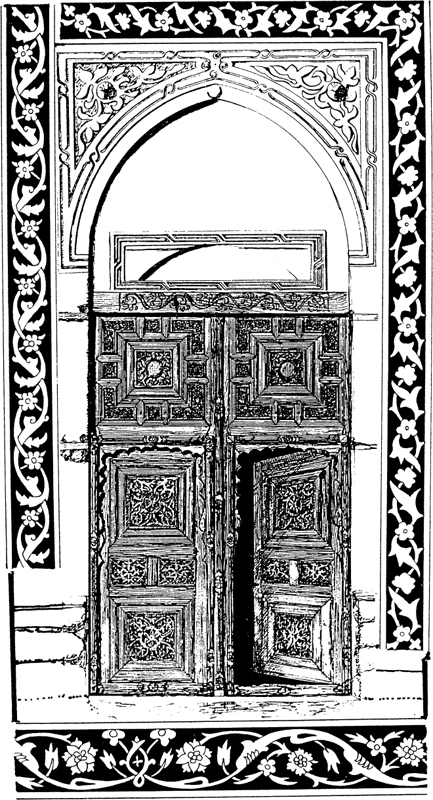Contents
As Salam alaykum: peace be upon you. I am Fez and, insha Allah (God willing), I will make sure that the authors keep to the straight path. Stay tuned.
Muhammad, peace be upon him*, is the most influential man in history. But he is not an ordinary man. He is a Prophet the last Prophet of God.
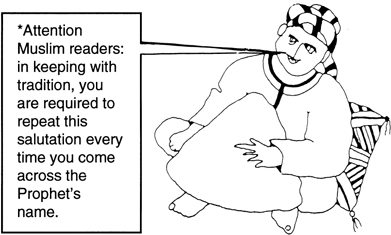
*Attention Muslim readers: in keeping with tradition, you are required to repeat this salutation every time you come across the Prophets name.
Prophet Muhammad did not start a new religion. He conveyed the same message as all the other prophets of God including Adam, Noah, Ibrahim, Moses and Jesus.
The eternal message that Muhammad preached is not named after him. It is called Islam which means peace and submission to God. The term Islam also signifies the natural inclination of human beings, a God-centred worldview, a civilization with over fourteen hundred years of history and an universalist world culture.
The followers of Muhammad are not called Muhammadan, this is an insulting term that first emerged during the crusades. Those who believe in the message of Muhammad and that he is the last Messenger of God are called Muslims.
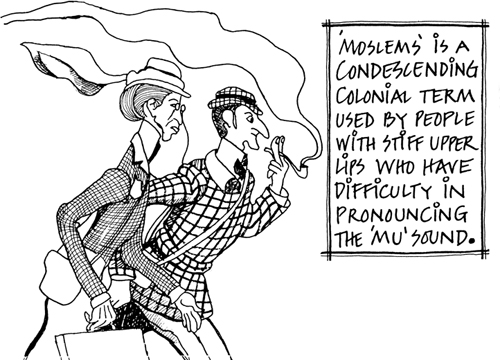
moslems is a condescending colonial term used by people with stiff upper lips who have difficulty in pronouncing the mu sound.
The Life of Muhammad
 570 CE: Prophet Muhammad was born in Makkah (aka Mecca), in the Arabian peninsula now called Saudi Arabia. His father, Abdullah, had died a few weeks before his birth. His grandfather entrusted him to a foster-mother, Halima, who looked after him during his infant years. When he was six, his mother died. Two years later, his grandfather also died. The young Muhammad was now looked after by Abu Talib, his paternal uncle. Abu Talib was a generous but poor man. So Muhammad had to earn his livelihood from a tender age he was thus unable to learn how to read or write.
570 CE: Prophet Muhammad was born in Makkah (aka Mecca), in the Arabian peninsula now called Saudi Arabia. His father, Abdullah, had died a few weeks before his birth. His grandfather entrusted him to a foster-mother, Halima, who looked after him during his infant years. When he was six, his mother died. Two years later, his grandfather also died. The young Muhammad was now looked after by Abu Talib, his paternal uncle. Abu Talib was a generous but poor man. So Muhammad had to earn his livelihood from a tender age he was thus unable to learn how to read or write.
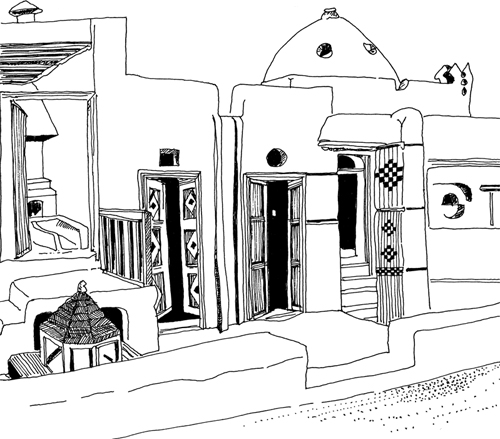
Makkah was a desert city. Its main distinction was the Kaaba, the house dedicated to the One God and built under divine inspiration by Prophet Abraham. The majority of Makkahs inhabitants were idol worshippers. Makkah functioned as a city-state, governed by a council of ten hereditary tribal chiefs with clear division of power. The most powerful of Makkan tribes was the Quraysh the tribe of Muhammad. The citys inhabitants were poor but generous people, they loved poetry and war, and were fiercely loyal to their tribes and their gods. While it had no natural resources of its own, it was an active commercial centre. Foreign traders brought their goods to be sold in the local market. Muhammad became a trader and accompanied Abu Talib on business trips to Palestine and Syria.
He is not one of us who proclaims the cause of nationalism and he is not one of us who fights the cause of nationalism and he is not one of us who dies in the cause of nationalism. Nationalism means helping your people in an unjust cause.
Prophet Muhammad
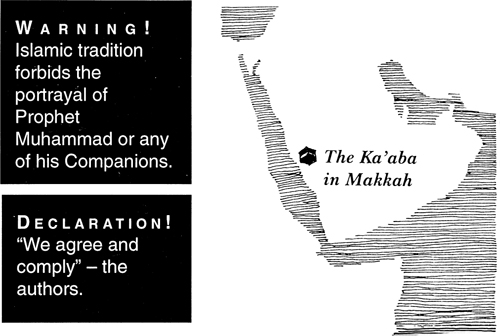
WARNING! Islamic tradition forbids the portrayal of Prophet Muhammad or any of his Companions. DECLARATION! We agree and comply the authors.The Kaaba in Makkah
The Pledge
 ne day, a trader from Yemen was cheated of his goods by a group of Makkans. When the trader asked for help, no one came to his support. So he wrote a satirical poem and recited it aloud for all to hear. When Zubair, one of Muhammads uncles, heard the poem he felt great remorse. He called a meeting of citys elders and established an order of chivalry with the declared aim of protecting the oppressed of the city, local inhabitants or foreign visitors. Young Muhammad became an enthusiastic member of this organization which was called Hilf al-fudul. Later he would say: I am not prepared to give up the privilege (of being a member) even against a herd of camels; if somebody should appeal to me even today, by virtue of that pledge, I shall hurry to his help.
ne day, a trader from Yemen was cheated of his goods by a group of Makkans. When the trader asked for help, no one came to his support. So he wrote a satirical poem and recited it aloud for all to hear. When Zubair, one of Muhammads uncles, heard the poem he felt great remorse. He called a meeting of citys elders and established an order of chivalry with the declared aim of protecting the oppressed of the city, local inhabitants or foreign visitors. Young Muhammad became an enthusiastic member of this organization which was called Hilf al-fudul. Later he would say: I am not prepared to give up the privilege (of being a member) even against a herd of camels; if somebody should appeal to me even today, by virtue of that pledge, I shall hurry to his help.
Muhammads Wisdom
 uhammad often helped the inhabitants of Makkah to settle their disputes. Once, the Kaaba caught fire and was burnt to the ground. When it was rebuilt, all the tribes of Makkah took part in its construction. But when it came to fixing the sacred Black Stone in the wall, a quarrel arose amongst the Makkan leaders all wanted to have the honour of fixing the stone. Finally, they agreed to select a judge from amongst them and abide by his ruling. The judge was Muhammad; and his solution to the problem saved the honour of all concerned. He spread a white sheet on the ground, placed the Black Stone in the middle, and asked the tribal leaders of Makkah to hold the sheet and carry the stone to its site. Muhammad than fixed the stone in its place. It was his integrity, honesty and wisdom that earned Muhammad the title of Al Amin the trustworthy.
uhammad often helped the inhabitants of Makkah to settle their disputes. Once, the Kaaba caught fire and was burnt to the ground. When it was rebuilt, all the tribes of Makkah took part in its construction. But when it came to fixing the sacred Black Stone in the wall, a quarrel arose amongst the Makkan leaders all wanted to have the honour of fixing the stone. Finally, they agreed to select a judge from amongst them and abide by his ruling. The judge was Muhammad; and his solution to the problem saved the honour of all concerned. He spread a white sheet on the ground, placed the Black Stone in the middle, and asked the tribal leaders of Makkah to hold the sheet and carry the stone to its site. Muhammad than fixed the stone in its place. It was his integrity, honesty and wisdom that earned Muhammad the title of Al Amin the trustworthy.
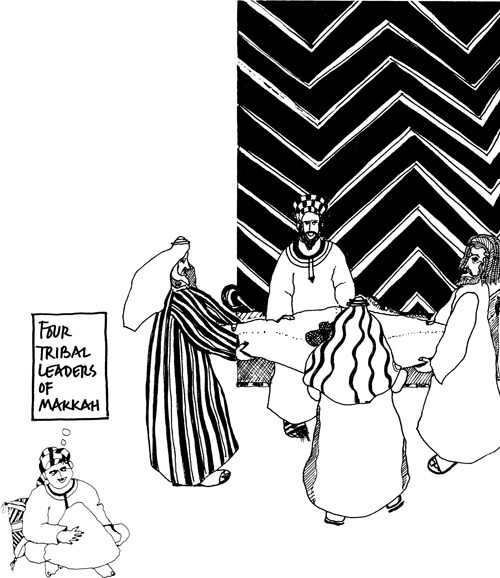
Four tribal leaders of makkah
Marriage
 ne day, when Muhammad was 25, his uncle Abu Talib said to him: I am, as you know, a man of scanty means, and truly the times are hard. Now there is a caravan of your own tribe about to start for Syria, and Khadijah, daughter of Khuwaylid, is in need of the services of men of our tribe to take care of her merchandise. If you offer yourself for the enterprise, she would readily accept it. Muhammad replied: Be it as you say.
ne day, when Muhammad was 25, his uncle Abu Talib said to him: I am, as you know, a man of scanty means, and truly the times are hard. Now there is a caravan of your own tribe about to start for Syria, and Khadijah, daughter of Khuwaylid, is in need of the services of men of our tribe to take care of her merchandise. If you offer yourself for the enterprise, she would readily accept it. Muhammad replied: Be it as you say.
Muhammads courtesy, honesty and devotion to his work, earned the admiration of the widowed Khadija. So impressed was she with the young Muhammad that she proposed marriage. Muhammad accepted. At 40, she was 15 years older than him.
To bring about a just reconciliation between two contestants is charity, helping a person mount his animal or to load his baggage onto it is charity, a good word is charity, to remove obstacles in the street is charity, smiling upon the face of your brother is charitysexual relations with your spouses is charity.

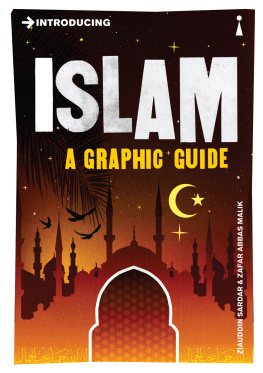
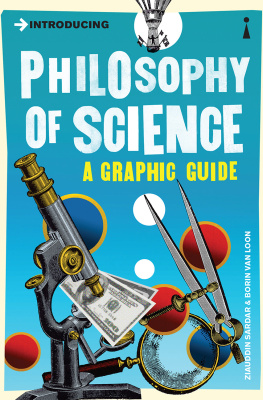
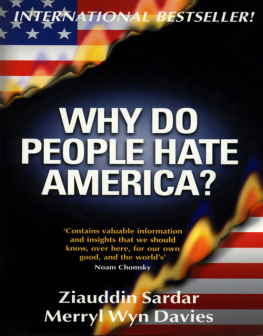

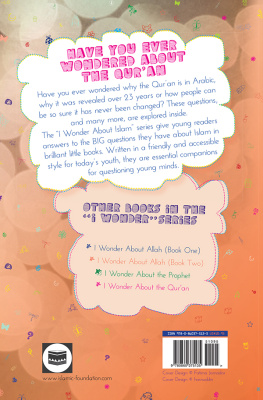

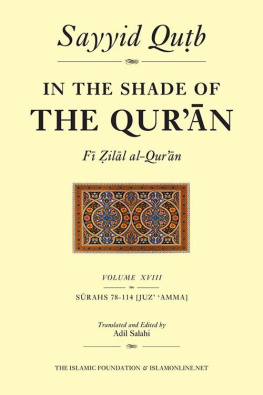
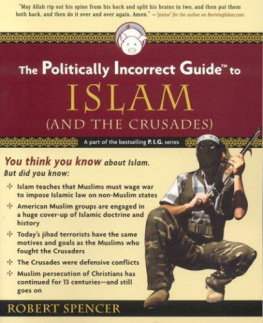
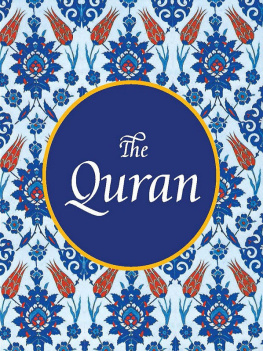
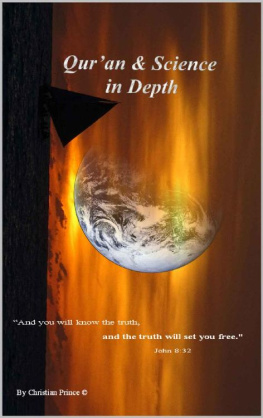
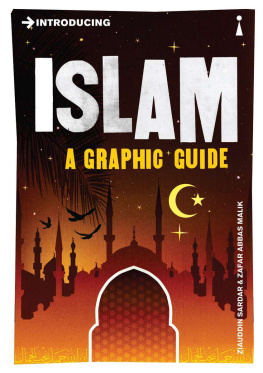
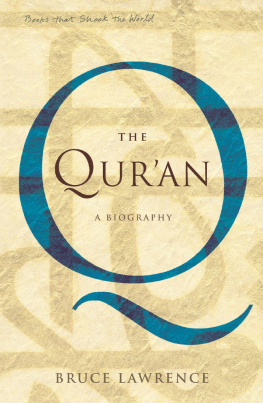
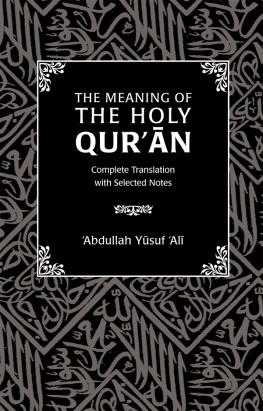

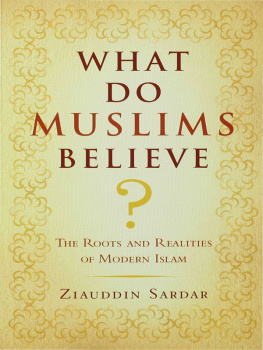
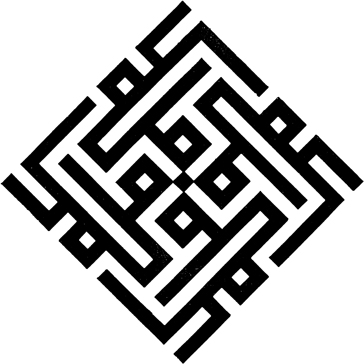
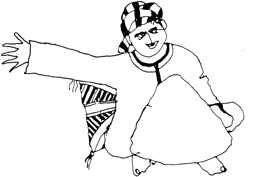


 570 CE: Prophet Muhammad was born in Makkah (aka Mecca), in the Arabian peninsula now called Saudi Arabia. His father, Abdullah, had died a few weeks before his birth. His grandfather entrusted him to a foster-mother, Halima, who looked after him during his infant years. When he was six, his mother died. Two years later, his grandfather also died. The young Muhammad was now looked after by Abu Talib, his paternal uncle. Abu Talib was a generous but poor man. So Muhammad had to earn his livelihood from a tender age he was thus unable to learn how to read or write.
570 CE: Prophet Muhammad was born in Makkah (aka Mecca), in the Arabian peninsula now called Saudi Arabia. His father, Abdullah, had died a few weeks before his birth. His grandfather entrusted him to a foster-mother, Halima, who looked after him during his infant years. When he was six, his mother died. Two years later, his grandfather also died. The young Muhammad was now looked after by Abu Talib, his paternal uncle. Abu Talib was a generous but poor man. So Muhammad had to earn his livelihood from a tender age he was thus unable to learn how to read or write.

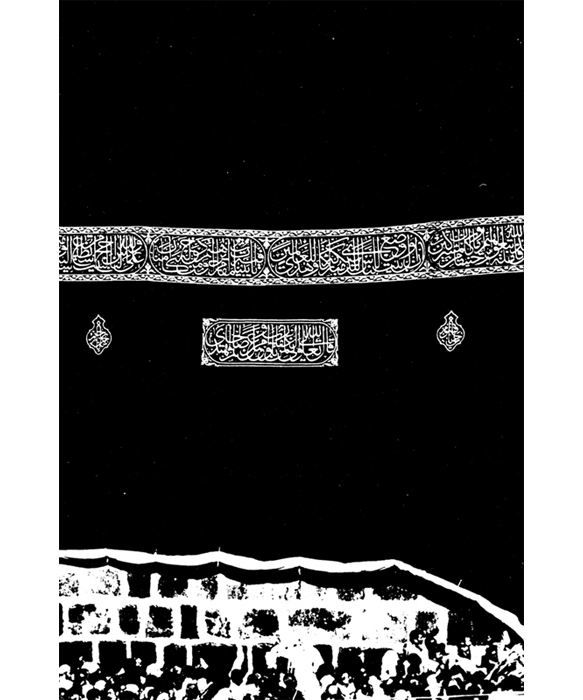
 ne day, a trader from Yemen was cheated of his goods by a group of Makkans. When the trader asked for help, no one came to his support. So he wrote a satirical poem and recited it aloud for all to hear. When Zubair, one of Muhammads uncles, heard the poem he felt great remorse. He called a meeting of citys elders and established an order of chivalry with the declared aim of protecting the oppressed of the city, local inhabitants or foreign visitors. Young Muhammad became an enthusiastic member of this organization which was called Hilf al-fudul. Later he would say: I am not prepared to give up the privilege (of being a member) even against a herd of camels; if somebody should appeal to me even today, by virtue of that pledge, I shall hurry to his help.
ne day, a trader from Yemen was cheated of his goods by a group of Makkans. When the trader asked for help, no one came to his support. So he wrote a satirical poem and recited it aloud for all to hear. When Zubair, one of Muhammads uncles, heard the poem he felt great remorse. He called a meeting of citys elders and established an order of chivalry with the declared aim of protecting the oppressed of the city, local inhabitants or foreign visitors. Young Muhammad became an enthusiastic member of this organization which was called Hilf al-fudul. Later he would say: I am not prepared to give up the privilege (of being a member) even against a herd of camels; if somebody should appeal to me even today, by virtue of that pledge, I shall hurry to his help.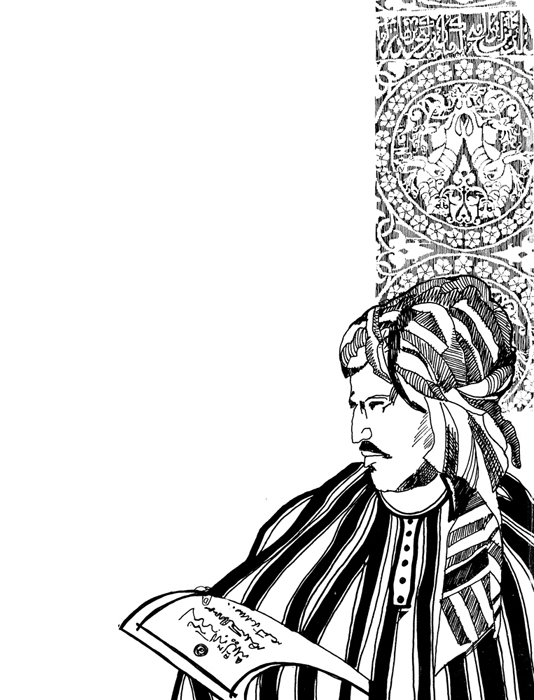
 uhammad often helped the inhabitants of Makkah to settle their disputes. Once, the Kaaba caught fire and was burnt to the ground. When it was rebuilt, all the tribes of Makkah took part in its construction. But when it came to fixing the sacred Black Stone in the wall, a quarrel arose amongst the Makkan leaders all wanted to have the honour of fixing the stone. Finally, they agreed to select a judge from amongst them and abide by his ruling. The judge was Muhammad; and his solution to the problem saved the honour of all concerned. He spread a white sheet on the ground, placed the Black Stone in the middle, and asked the tribal leaders of Makkah to hold the sheet and carry the stone to its site. Muhammad than fixed the stone in its place. It was his integrity, honesty and wisdom that earned Muhammad the title of Al Amin the trustworthy.
uhammad often helped the inhabitants of Makkah to settle their disputes. Once, the Kaaba caught fire and was burnt to the ground. When it was rebuilt, all the tribes of Makkah took part in its construction. But when it came to fixing the sacred Black Stone in the wall, a quarrel arose amongst the Makkan leaders all wanted to have the honour of fixing the stone. Finally, they agreed to select a judge from amongst them and abide by his ruling. The judge was Muhammad; and his solution to the problem saved the honour of all concerned. He spread a white sheet on the ground, placed the Black Stone in the middle, and asked the tribal leaders of Makkah to hold the sheet and carry the stone to its site. Muhammad than fixed the stone in its place. It was his integrity, honesty and wisdom that earned Muhammad the title of Al Amin the trustworthy.
 ne day, when Muhammad was 25, his uncle Abu Talib said to him: I am, as you know, a man of scanty means, and truly the times are hard. Now there is a caravan of your own tribe about to start for Syria, and Khadijah, daughter of Khuwaylid, is in need of the services of men of our tribe to take care of her merchandise. If you offer yourself for the enterprise, she would readily accept it. Muhammad replied: Be it as you say.
ne day, when Muhammad was 25, his uncle Abu Talib said to him: I am, as you know, a man of scanty means, and truly the times are hard. Now there is a caravan of your own tribe about to start for Syria, and Khadijah, daughter of Khuwaylid, is in need of the services of men of our tribe to take care of her merchandise. If you offer yourself for the enterprise, she would readily accept it. Muhammad replied: Be it as you say.